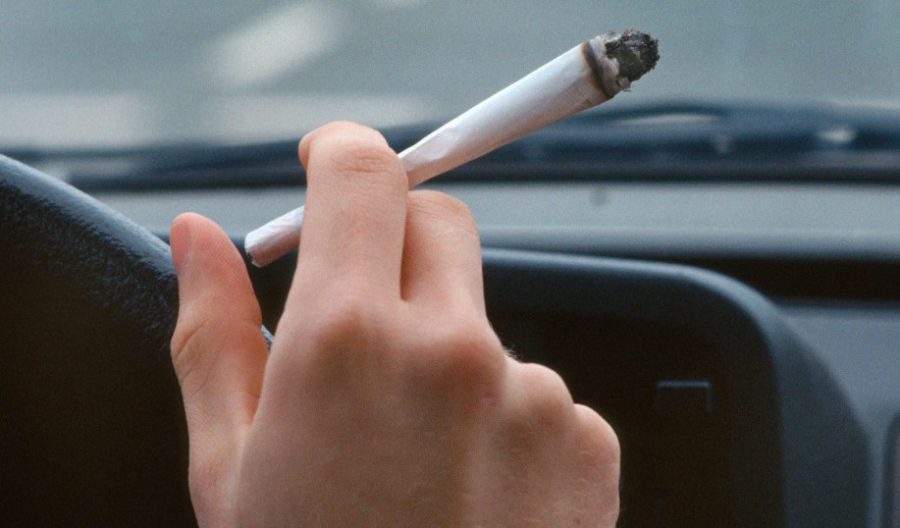Data reveals no noticeable increase in cannabis-impaired driving one month post-legalization
It’s been one month since Canada legalized recreational weed. In spite of cynics believing that legalization would cause chaos on the roads, it seems that cannabis-impaired driving is not on the rise.
Officers in Canada have not seen an increase in the number of cannabis-impaired driving incidents. Nevertheless, law enforcement officials state that there must be more public awareness of the laws regarding storing cannabis in vehicles.
This information is based on a report by the Canadian Press.
“Even before the legislation we were catching a lot of high school kids because marijuana has seemed to be kind of mainstream forever,” said Sgt. Joe Cantelo of New Brunswick’s Kennebecasis Regional Police Force. “In our department, there’s certainly no rise in impaired driving by (cannabis).”
Significant change in cannabis-impaired driving figures not noticed since Canada’s cannabis legalization
Canada’s cannabis legalization, aside from the shortage in weed supply that is causing users to turn to the black market, is not severely impacting road safety, say police in numerous locations. Those locations include Kensington, Labrador, Newfoundland, N.S., P.E.I., Regina, Truro, Vancouver and Yukon. All of the police officers in these locations confirmed that they had not seen any spike in the number of cannabis-impaired driving incidents since Bill C-45 passed on October 17.
Cantelo claims that three separate impaired driving charges occurred in his community over the last few weeks and they didn’t involve weed. Rather, they involved “strictly older adults with alcohol.”
Three investigations were carried out by Manitoba RCMP to discover more about the number of cannabis-impaired driving charges that occurred within a three-week period prior to Canada’s cannabis legalization. During the same period of time, 50 alcohol-impaired driving charges were recorded.
According to Const. Jason Doucette, Vancouver police have issued 18 violation tickets in accordance with provincial cannabis laws since the bill’s passing. Most of the incidents relating to cannabis did not involve impairment but instead, improper storage. He says that four separate driving suspensions lasting 24 hours were issued by Vancouver officers during a roadblock campaign for six separate events.
“As expected, we haven’t seen a dramatic increase in cannabis-related offenses,” he added.
Although each province and territory within Canada has been given the go-ahead to enact their own laws regarding cannabis storage in vehicles, most provinces and territories have been ordered to keep packaging out of the driver’s reach. In some provinces, cannabis must be secured in the trunk, such as Manitoba.
According to RCMP, no less than six charges connected with open or accessible weed in vehicles have been reported in Newfoundland and Labrador.a
Cannabis-impaired driving sometimes not distinguishable from drunk driving
It’s not just the drivers who will be prohibited from lighting up whilst inside their vehicles in British Columbia and Ontario but also, many other provinces. Take Saanich, B.C. for example. The district municipality on Vancouver Island has banned passengers from smoking joints, with one unlucky passenger being slammed with a $230 fine just one day after legalization.
Cannabis-impaired driving incidents are not necessarily tracked as a separate impairment to alcohol or drugs in certain police detachments and Crowns.
According to police in Toronto, to-date in 2018, 58 drug-impaired driving incidents have been recorded. Two of those incidents occurred after Canada’s cannabis legalization and 824 alcohol-impaired incidents occurred on top of that. In 2017, 60 drug-impaired incidents arose, as well as 1,154 alcohol-impaired incidents.
No cannabis-related driving incidents occurred in Halifax and the Northwest Territories three weeks before and after Canada’s cannabis legalization. Nunavut, on the other hand, saw five impaired driving charges during the same period of time.
According to Sgt. Joyce Kemp, provincial police in Quebec arrested 252 people for driving whilst impaired by drugs between January 1 and September 17 of this year. This isn’t much of a comparison to the 319 incidents in 2017 and 310 in 2016.
“A lot of people seem to think this is something new,” said Kemp. “But the numbers speak (for themselves), we’ve been doing this for quite a few years now.”
A federally approved roadside saliva test called the Drager DrugTest 5000 will be adopted by police in Edmonton, Regina, Yukon and Nunavut. Police detachments that have not gone down this route have opted to use field sobriety tests.









